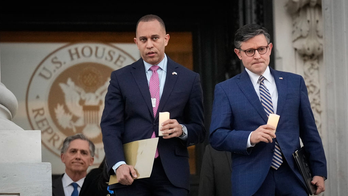
Government budget woes, the efficiency of the Internet and the staggering volume of junk mail have rightfully buried the U.S. Postal Service, say environmental groups and budget analysts who call the mail delivery model built on the Pony Express no longer viable in the 21st century.
Nearly 700 post offices around the country are scheduled for potential closure and consolidation by the independent Postal Regulatory Commission. In a document presented to a House subcommittee last week, the near-bankrupt U.S. Postal Service also called for reducing service from six to five days a week.
Among the cities most affected are New York, with 49 potential closings throughout its five boroughs, and St. Louis, Mo., where 38 post offices are being eyed for closure. The postal service lists 25 possible closings in Chicago and 16 in Philadelphia. Ohio risks losing a total of 52 across the state in cities like Cincinnati and Cleveland.
The Government Accountability Office has called for the nation's postal system to undergo a drastic overhaul that includes office closures, layoffs and changes to retiree health benefits.
"There are serious and significant structural financial challenges currently facing the Postal Service," Gene L. Dodaro, Acting Comptroller General of the United States and head of the GAO, said in a statement July 28.
"New technology is profoundly affecting services in both the private and public sectors, including traditional mail delivery. Compounded by the current recession, the volume of mail being sent is dropping substantially, leading to a sizeable decline in revenue. At the same time, the Postal Service faces significant infrastructure and personnel costs," he wrote.
Other critics also say overhaul is the only way out.
"The Postal Service is your classic lumbering government-run behemoth," said Tad DeHaven, a budget analyst with the CATO Institute in Washington, D.C. "It's a failed socialistic method of how to run something."
DeHaven blasted the postal system for charging the same amount of money to mail a letter from New York City to Buffalo as from New York City to California. He said complete privatization is essential if the Postal Service hopes to remain a viable business.
Total mail volume processed in 2008 was 203 billion pieces, according to the U.S. Postal Service's Web site. The average amount of mail processed each day in the nation's 32,741 post offices is 667 million, the site says.
Mail volume fell by 9.5 billion pieces in fiscal year 2008, GAO reports, and is projected to fall by 28 billion pieces in fiscal year 2009 to 175 billion pieces. The USPS reported a $7 billion loss in 2008.
According to Fiserv, Inc., a financial services technology group, 64.4 million households -- nearly four out of the five households with Internet access -- pay at least one bill online, either at a bank or a company Web site.
In a survey conducted by the Marketing Workshop and Harris Interactive and released for Fiserv in July, large majorities said they prefer online bill payments because it is easier, faster, saves money and allows them to control the timing of payments.
In addition, 58 percent of e-bill recipients said environmental impact was either important or very important in their decision to do online bill pay.
With those kind of numbers behind them, environmental groups are lambasting the USPS for relying overwhelmingly on the delivery of unsolicited advertisements to remain in business.
Will Craven, a spokesman for the environmental group Forest Ethics, said the average household receives more than 800 pieces of junk mail per year -- paper equal to 100 million trees per year.
"A business model based on the deliverance of junk mail is not working out for the Postal Service," said Craven, whose group is pushing for stricter federal rules to limit the volume of junk mail.
"You can't have a business model based on a practice that annoys people," added Dave Tilford, a senior writer with Center for a New American Dream, an environmental group based in Maryland.
But some lawmakers, like Sen. Susan Collins, who sits on the committee that oversees the Postal Service, argue that slamming the door on 667 post offices around the country is no way to fix the agency.
"It seems to me that cutting back on service will only cause the Postal Service to lose more business and more customers," Collins said Tuesday.
While no decision has been finalized, a USPS spokesman told FOX News on Tuesday that only about 300 of the 667 post offices may be shuttered.
Fox News' Malini Wilkes contributed to this report.




